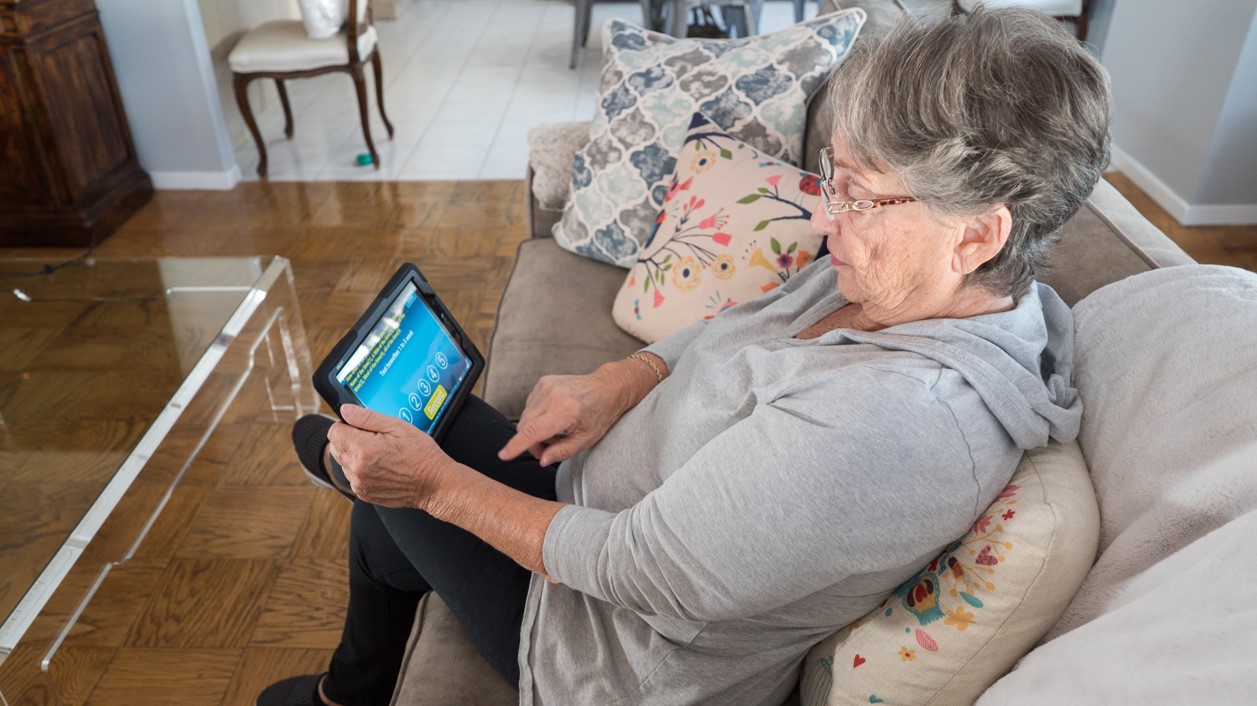The past year has challenged and strained the U.S. healthcare system in ways never before seen. Even with all the dark days, there have been some rays of light for the future of healthcare, perhaps most notably how pharmaceutical companies mobilized to bring three life-saving vaccines to market at lightning speed.
Another bright ray of light is the increased use of telehealth services across the healthcare continuum as millions of Americans stuck at home were able to use telehealth to visit their primary care doctors and specialists. The demand for telehealth has grown exponentially and in December 2020 alone, telehealth services saw a 2,800% increase in claim line volume from the previous year.
The convenience of a telehealth visit has been made clear and the platform is here to stay, but telehealth is so much more than a doctor’s visit via Zoom. Our long-held thesis at Edison Partners is that the future of healthcare is in the home. By treating patients recently discharged from the hospital and providing longer term care for those with chronic conditions, we believe outcomes and patient satisfaction will improve and healthcare costs will decrease. What we didn’t know was that a pandemic would greatly accelerate the need for remote patient monitoring (RPM) and that our August 2019 investment in Health Recovery Solutions (HRS) would help the company become the leading RPM provider in the market today.
The Trifecta
I will never forget when I first visited CEO Jarrett Bauer at HRS headquarters in Hoboken, NJ, an easy drive from Edison Partners’ home base in Princeton. During that visit, it took about 15 minutes to realize Jarrett and team had hit the healthcare trifecta -- improved patient outcomes, reduced client costs, and enhanced patient satisfaction -- a rarity. Most companies cannot even think of getting to two, let alone three.
HRS believes that outpatient care is as vital as inpatient care, and that patients and providers must be equipped with tools to improve clinical outcomes. With clients that include more than 200 medical centers and 40 of the largest home healthcare agencies, HRS monitors hundreds of thousands of high-risk patients every year to reduce their likelihood of being readmitted to the hospital and to maximize their healthy days at home. On average, HRS clients report a 76% reduction in readmission rates, an average of 89% patient satisfaction/adherence using the system, and over $370M in total medical cost savings.
With all these positives, my partners and I knew that HRS was a deal we had to do. In 2019, we invested $13M to help accelerate the company’s go-to-market capabilities and augment its RPM technology platform. Since our investment, HRS has experienced a 96.5% increase in patients using its platform, a 175% increase in virtual visits on the platform, and an eye-popping 188% increase in revenue. The team’s leadership and innovation for hospitals, home health agencies, and more has also led them to receive the 2020 and 2021 Best in KLAS Distinction for RPM and to rank #272 on the Inc. 5000 List of Fastest Growing Companies in America.
We continue to believe in HRS’ vision, leadership and platform, so today we are thrilled to announce that we are reinvesting to help the company further expand its market leadership.
(Click here to view the Forbes interview with CEO Jarrett Bauer regarding the Series C funding.)
From Nice to Have to Need to Have
The RPM market has been on the rise for a number of years due to a variety of factors:
-
Rising healthcare costs driven by an aging population and a rise in chronic illnesses like diabetes, heart disease, asthma, and hypertension;
-
Payers shifting to value-based reimbursement structures that necessitate proactive care management and greater connectivity across the care continuum;
-
Physician shortages and cost of care limiting access to care for large segments of the population.
Obviously, RPM became even more important in 2020 as hospitals needed to discharge patients and still ensure they were getting proper care at home. At this point, it’s clear that the importance of remote monitoring is only going to increase as we consider that 60-70% of hospital admissions and readmissions are for patients suffering from chronic illnesses. In fact, the Centers for Disease Control says that chronic conditions are the leading causes of death and disability and account for 90% of the nation’s $3.8 trillion in annual healthcare costs.
A Win-Win-Win
HRS’ solutions are a win-win-win to achieve better outcomes, lower costs and higher patient satisfaction.
-
Facilities gain unparalleled patient connectivity and engagement that ultimately results in workflow optimization and increased patient volumes, all while reducing readmission rates by 70%.
-
Payors receive proactive care management for their high-risk population, resulting in enhanced health and cost outcomes, enhanced member satisfaction and the enablement of value-based care.
-
Patients enjoy 24/7 connectivity and coordination with their providers through an easy-to-use tool for proactive symptom monitoring and management that enhances their quality of life.
The future is bright indeed, and HRS is uniquely positioned to capitalize on the ongoing shift to Hospital at Home. We couldn’t be more proud to continue partnering with Jarrett Bauer, his innovative team, and our friends at LLR Partners as we all work to change the face of telehealth and remote patient monitoring.


.png)